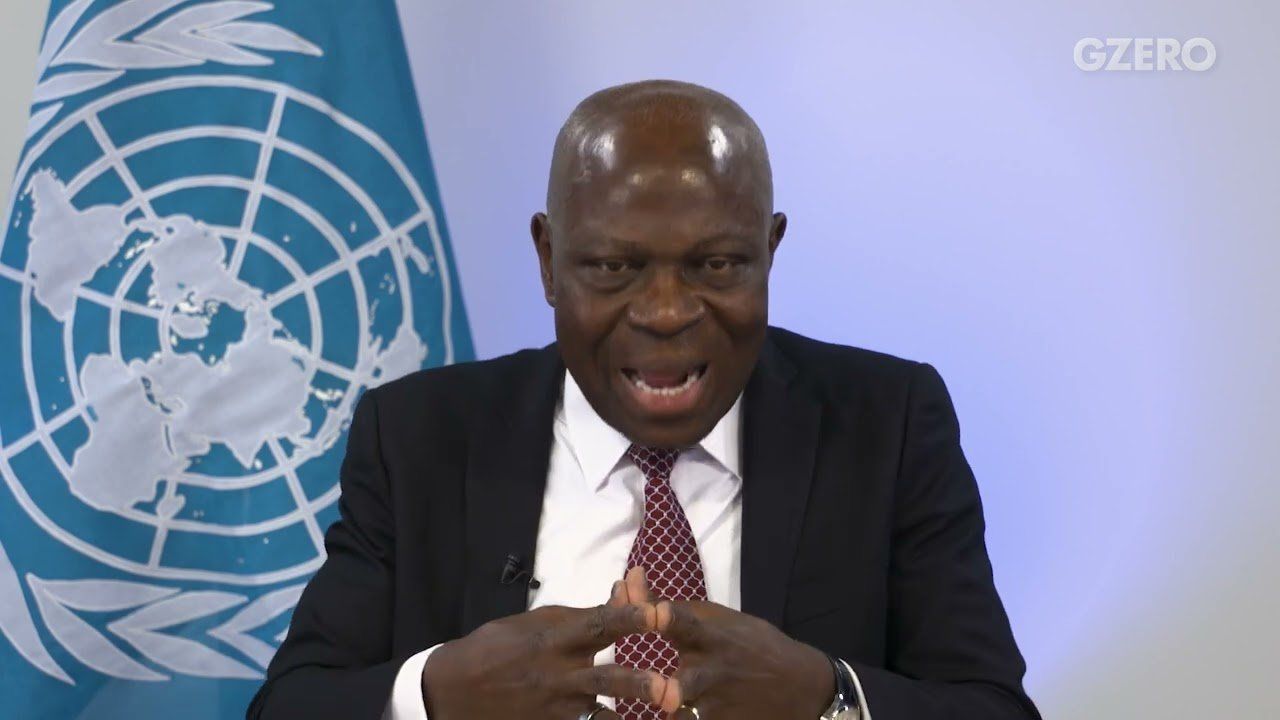GZERO World Clips
The challenge of measuring the global water crisis

The challenge of measuring the global water crisis | GZERO World

How do you measure the global water crisis? When it comes to climate change, many people are familiar with the 1.5°C metric from the Paris Climate Accords, but is there an equivalent for water? In a discussion with Ian Bremmer on GZERO World, UN-Water Chair Gilbert Houngbo delves into the complexity of measuring the global water challenge and evaluating solutions for the future.
UN-Water is a consortium of dozens of UN agencies working together to address the water crisis and figure out the best way to meaure progress. Houngbo notes that metrics like access to drinkable water, sanitation, and water reuse are a good start. But the worst water scarcity problems are in rural areas, where the data quality is challenging.
Developing strong metrics, Houngbo says, will help us better understand the “nexus between water and climate change," because water is so closely linked to the health of our planet. For example, some of the world's rivers are losing 10-20% of their reserves each year, and precisely tracking that loss with tools like artificial intelligence will help us better address the problem.
But it's not all bad news. Houngbo is positive our society can meet the global water challenge. In the medium to long term, he says, our habits and way of life will adjust, and “the Internet of Things” will help change our consumption patterns.
Watch the GZERO World episode: The uncomfortable truth about water scarcity
50: Mexico’s President Claudia Sheinbaum is taking a page out of US President Donald Trump’s book, implementing up to a 50% tariff on more than 1,400 products in a bid to boost domestic production.
Walmart’s $350 billion commitment to American manufacturing means two-thirds of the products we buy come straight from our backyard to yours. From New Jersey hot sauce to grills made in Tennessee, Walmart is stocking the shelves with products rooted in local communities. The impact? Over 750,000 American jobs - putting more people to work and keeping communities strong. Learn more here.
In this episode of Tools and Weapons, Microsoft Vice Chair and President Brad Smith sits down with Ed Policy, President and CEO of the Green Bay Packers, to discuss how purpose-driven leadership and innovation are shaping the future of one of the world’s most iconic sports franchises. Ed shares how technology and community-focused initiatives, from Titletown Tech to health and safety innovations on the field, are transforming not just the game of football, but the economy and culture of Green Bay itself. He explains how combining strategic vision with investment in local startups is keeping talent in the Midwest and creating opportunities that extend far beyond Lambeau Field.
Subscribe and find new episodes monthly, wherever you listen to podcasts.